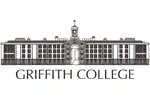About Media Techniques: TV and Video, City & Guilds Certificate - at Griffith College
The purpose of the award winning Griffith College Media Techniques course is to offer students a fundamental knowledge of the practical application of TV and video production and post-production techniques using digital technology. The course involves subjects such as television and video production, film-theory and photography. This course is for the dedicated individual who wishes to have a thorough understanding of the complexities of the art of television and video production, particularly through the completion of practical assignments. Students will receive a City & Guilds certification in Television and Media Techniques. In addition HETAC certification for certain subjects is also available for students meeting entry criteria.
The nature of visual media has changed dramatically during the past few years with more opportunities evolving because of digital television, the Internet and increased film production. A representative committee, drawn from the forefront of Irish film education and practice, has designed the course syllabus to reflect and adapt to both technical and market developments. The Course Content and skills taught are relevant to current and emerging job opportunities. In addition many of the course lecturers are also industry professionals, thus ensuring that students are exposed to facilitators who are at the cutting edge of a highly competitive industry. Though the course is primarily practical in nature - with students creating their own video productions using digital production and post-production equipment - a balance between practical applications and academic pursuits is maintained.
Overview of Equipment Sony DSR 300, Rear-zoom and rear-focus controls, Canon XL1, Lighting kits, Chimeras, Kino-flos, Vinten Vision, Sachtler, Sennheiser 416, 816, ME80, Shure FP33, Shure SM58, Sony ECM44, JVC1010TM, Grip equipment, Sony DSR20P, SVHS analogue editing equipment, Mac G4, Final Cut Pro, Adobe Premiere and other software programs
Course Content Semester 1:
- Television Techniques 1
- Scriptwriting for news and studio
- Media & Society
- Television History
- Computer Technology
- Media & Information Technology
- Practical Photography
Semester 2:
- Television Techniques 2
- Film History 2
- Practical Applications
- Digital Editing Techniques
- Media Law
- Assorted Industry Lectures
- Scriptwriting for Video Production
- Project Work
Project work is an integral part of this course. On completion of the first semester, students will present a 3-minute news report. In this first project, the emphasis will be on stand-ups, voice-overs, reports to camera and investigative techniques. Analogue editing techniques are also used during this semester. The second semester represents an upturn in workload and students will be expected to complete a minimum of two video projects in addition to making their own show-reel for presentation. Students will be expected to work to tight deadlines and learn how to integrate practical skills into teamwork with others. Students will also be expected to learn how to relate audio with video images. A second-year advanced course is currently being developed as a follow on programme.
Progression On completion students may wish to apply for the BA in Journalism & Media and will be considered for subject exemptions on the basis of performance and portfolio.
Careers On successful completion, students are qualified to work as assistant video editors in film/television production houses. Alternative areas of prospective employment include audio, video, lighting, production and research positions in television and film production.
Part time variation available to EU students only. 
